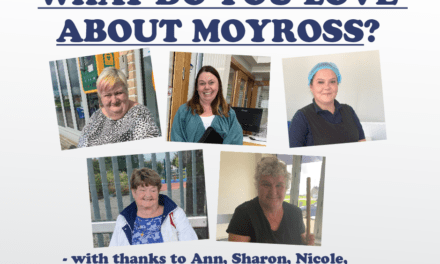Community workers – often indirectly funded by the State – are perversely being offered better pay in other areas funded by government. The situation is urgent. It is the most talked about issue of the day and that’s saying something.
Money talks, and some people are walking away from jobs and potentially from a career in community development.
It presents a new challenge for community groups.
One community work co-ordinator told me he scrambled to find another couple of thousand Euro to offer a valued staff member looking to depart.
“There’s no point,” his colleague said. The difference in salary was €15k.
The lost worker was brilliant with marginalised communities and wanted to stay, but in a time of inflation, rising energy costs and looming recession, money talks, and now she works in the education sector. She was the organisation’s third core staff member to leave in 12 months.
Experienced staff are being hired by the better-paying HSE, local authorities and government agencies.
As the CEO of a local development company in Dublin tells journalist Kathy Masterson, not a week goes by without them needing to advertise posts or conduct interviews (see pages 5-7).
In Kildare, a community Garda told me of repeated attempts to recruit community-based addiction support workers. Despite repeat advertisements, not one suitable worker applied. In fact, nobody at all applied when the posts were first advertised. The project is in limbo.
The only silver lining to all this is that it must be a good time for graduates.
Nevertheless, there is a solution. The Government says it is serious about its five-year policy strategy for the community and voluntary sector. It recently launched a follow-up document on shared values and principles for when community organisations and the State wish to work together to empower communities (see pages 8-10).
The salaries and retention issue is undermining communities. It is therefore incumbent on the State to listen and to act and ultimately to raise salaries.
Media commentators may liken what is happening with pay in other sectors. We know the gardaí are struggling to recruit, the navy cannot staff all its ships, teachers are impossible to hire and midwives are scarce.
The housing crisis is a contributary factor, especially in Dublin where young teachers and gardaí cannot afford the rent.
You may well think: ‘The country has more pressing need for gardaí and teachers and midwives than for community development workers’.
However, the situation facing us is different. Community workers – often indirectly funded by the State – are perversely being offered better pay in other areas funded by government.
However, when they move, it takes them out of the community (usually to desk jobs) and there are around 1,000 unfilled community sector vacancies at present. The situation is urgent. It is the most talked about issue of the day and that’s saying something.





